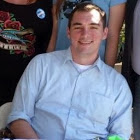

Students are some of the most energetic and effective organizers, and are passionate about the importance of science education and resisting denialist attacks on climate change and evolution. Campus groups have members who came together from every corner of the country (and certainly the state), and can quickly bring statewide pressure to bear in response to anti-science policies. They have passion, energy, skills, and a desire to invest those skills in a great cause. They have a direct stake in quality science education and the challenges and opportunities created by climate change and evolution. They are crucial allies for science education advocates.
There are also special challenges with building and maintaining ties to college campus groups. Leaders change regularly and the groups grow, shrink, and change direction as leaders and members graduate.
In this online training, we explore how to reach out to student groups as partners, how to connect them with local or state-wide networks of off-campus science education advocates, and how to keep that partnership active and successful over the long run. A panel of specialists in building ties to campus groups describe some of the difficulties that crop up when working with student groups, how to head problems off before they emerge, and how to make the most productive partnerships with student groups. They talk about what they’ve learned from working with students, and what you can learn through this outreach.
The panel includes Dan Pemberton, the California/Nevada Regional Organizer for the Secular Student Alliance, a national organization which supports groups of secular students on college and high school campuses; and Jenny Marienau, U.S. Field Manager for 350.org, who coordinates climate activists on campuses across the country. NCSE’s Josh Rosenau moderates.
